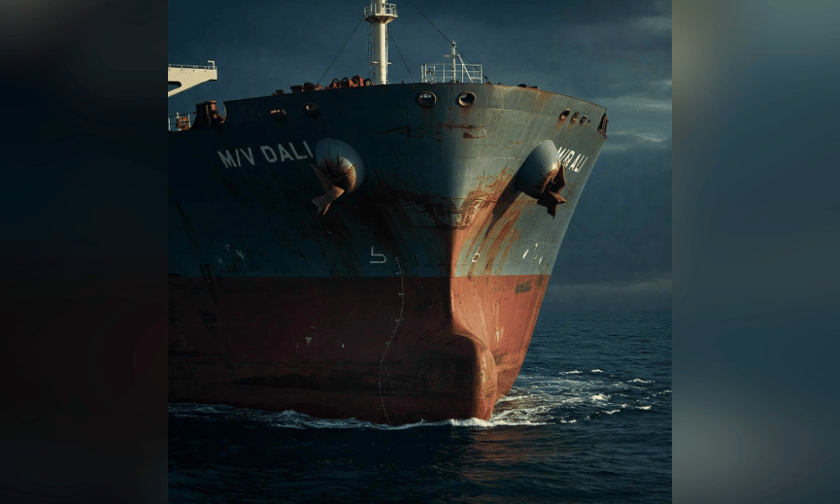

Lancashire Holdings Ltd, the Bermuda-based specialty insurer listed on the London Stock Exchange, has reported an after-tax profit of A$483.66 million for the year ending 31 December 2024, buoyed by strong underwriting performance and a 5% investment return. The company’s gross premiums written rose 11.3%, surpassing A$3.17 billion, while insurance revenue increased 16.1%, reaching nearly A$2.7 billion.
Lancashire Underwriting Australia Pty Ltd (LUA) was established in 2021 as a Lloyd's Service Company which underwrites on behalf of Lancashire Syndicates Limited's managed Syndicates 3010 and 2010. Lancashire are a provider of global specialty insurance and reinsurance products with a focus on short-tail, specialty (re)insurance risks within four general segments: Property, Energy, Marine, Aviation
The announcement follows Lancashire’s confirmation of its role as a key insurer in the Baltimore bridge collapse, a high-profile disaster that resulted in substantial claims. The MV Dali collision, which led to the collapse of the Francis Scott Key Bridge in March 2024, has emerged as one of the most significant loss events for the company this year.
Lancashire reported an insurance service result of A$571.86 million, with a discounted combined ratio of 80% and an undiscounted combined ratio of 89.1%. The company continued its underwriting expansion, with reinsurance segment premiums increasing by 13.5% and insurance segment premiums rising by 9.1%. Growth was fuelled by new business, particularly within the United States and Australian property markets.
Investment income contributed strongly to Lancashire’s financial position, rising 33.5% to A$217.9 million, with a total investment return of 5%. Despite this, Lancashire absorbed A$322.31 million in net losses from catastrophic and large-risk events, including hurricanes Milton, Helene, and Debby, storm Boris, and Calgary hailstorms.
The Baltimore bridge disaster was the most significant single-risk event absorbed by the company, reinforcing wider concerns over rising claims severity across the insurance industry.
Lancashire returned A$533.26 million to shareholders in 2024. The company’s board declared a total year-end dividend of A$0.60 per share, comprising a final ordinary dividend of A$0.23 and a special dividend of A$0.39.
“Importantly, we remain extremely well capitalised to fund future growth opportunities,” said Alex Maloney, group chief executive officer.
Looking ahead, the company expects to generate a mid-teens return on equity in 2025, assuming loss activity remains in line with 2024 levels. However, early estimates suggest that the January 2025 California wildfires could impact results by between A$218.28 million and A$248.39 million.
Lancashire Holdings Limited is a Bermuda-based insurance and reinsurance company specialising in property, casualty, energy, and marine coverage. Founded in 2005, Lancashire was established to provide specialty insurance solutions in high-risk sectors, with a focus on underwriting discipline and capital efficiency.
Lancashire Holdings was founded in Bermuda in 2005 by Richard Brindle, a former chief executive of Lloyd’s insurer Ascot Underwriting Ltd. The company was established in response to the demand for specialised insurance and reinsurance solutions, particularly following catastrophic events such as Hurricane Katrina, which exposed gaps in the market for property catastrophe insurance.
From its inception, Lancashire positioned itself as a specialty (re)insurer with a focus on high-margin, low-frequency risks. The company leveraged market dislocations following major catastrophe events, offering tailored coverage in property catastrophe, energy, terrorism, and aviation sectors.
By 2009, Lancashire had expanded its underwriting capabilities and further strengthened its presence in the Lloyd’s market. The acquisition of Cathedral Capital in 2013 enabled Lancashire to establish a stronger footprint within Lloyd’s of London, increasing access to specialised underwriting expertise and broadening its global reach.
Lancashire continued to grow through selective market participation, underwriting business across North America, Europe, and Asia. The firm remained committed to strict underwriting discipline while ensuring prudent capital management, making it one of the more profitable companies in the specialty insurance sector.
Lancashire operates through multiple platforms, including Lancashire Insurance Company Limited in Bermuda, Lancashire Insurance Company in the United Kingdom, and Lloyd’s Syndicates 2010 and 3010. The firm has consistently reported strong financial results, emphasising profitability over volume.
Its approach to underwriting has allowed the company to weather large catastrophe losses while maintaining competitive returns. Lancashire’s combined ratio, a key measure of profitability in the insurance industry, has remained relatively low, reinforcing its strong market standing.
In recent years, Lancashire has expanded its presence in the United States through Lancashire Insurance US, aligning with its strategy to grow in high-demand markets. Leadership transitions have accompanied this growth, with the company reinforcing its commitment to underwriting excellence and operational efficiency.
The company has also faced an increasing number of catastrophe-related claims, including those from hurricanes, wildfires, and major industrial accidents. One of the most high-profile claims in Lancashire’s recent history is the 2024 Baltimore bridge disaster, which significantly impacted the insurance sector.
As Lancashire approaches its 20th anniversary in 2025, it remains focused on maintaining its specialty underwriting expertise and capital discipline. With increasing climate-related risks and evolving regulatory challenges, Lancashire is expected to continue adapting its strategy while retaining its core focus on high-margin, specialty insurance solutions.
